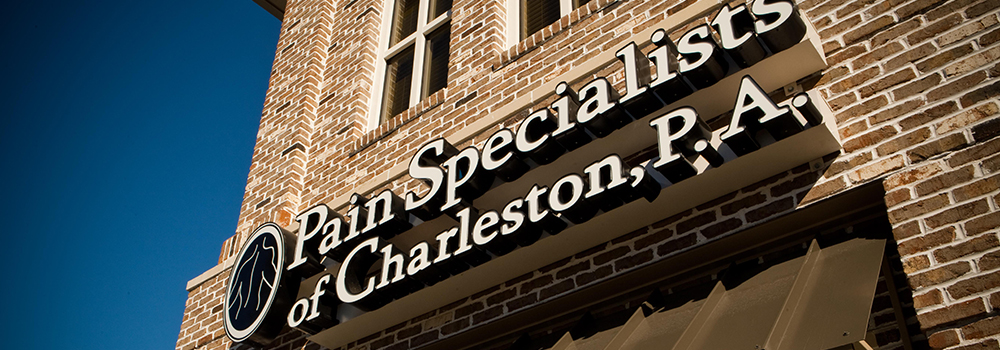A long day filled with countless office tasks, a sink full of dirty dishes, and a house in desperate need of a vacuum leaves you craving the comfort of your pillow.
There goes one sheep, then another, and another until sleep consumes you…
BAM! A sudden, burning pain in your calf tears you from sleep, and you’re left clutching your leg in agony trying to soothe the waging war in your muscles. Call them what you will – a charley horse, nocturnal leg cramps, or a plain old muscle spasm – but they are unpleasant and painful enough to leave you wide awake with questions running through your head.
What are the reasons behind a Charley horse? Can a banana really help? Is a visit to a pain management clinic near you worth the time and effort?
Keep reading to find out!

What is a Charley Horse?
A Charley horse, also referred to as a muscle cramp or spasm, is the sudden, unexpected tightening of one or more muscles. Unfortunately, muscle spasms are not centralized to your legs and feet. In fact, you can get a muscle spasm in the knee, neck, or anywhere in your body.
Even though the pain of a Charley horse may have you considering a visit to the doctor’s office, they are harmless and usually only last between a few seconds to a few minutes.
Risks and Reasons Behind Your Muscle Cramps
Causes of a Muscle Spasm
There are a multitude of reasons why your muscles are cramping. Some of the most common reasons include:
- Overworking or straining your muscle
- Excess activity in high or low temperatures
- Dehydration
- Holding a position for a prolonged length of time
- Stress
While most muscle cramps are harmless – albeit painful – some causes may be the result of a medical condition or concern, such as:
- Not enough blood flow: During exercise, your arteries will widen and become more flexible, increasing blood flow. However, if you suffer from a condition that narrows your arteries, the limited blood flow to your legs may cause cramping during exercise.
- Compressed nerves: A spinal cord injury or a pinched nerve in the back or neck can put undue pressure on the nerves, causing painful cramps or spasms as a result.
- Not enough minerals: Your diet often plays a pivotal role in your muscle health. Too little potassium, calcium, or magnesium can lead to leg cramps. Certain prescription medicines may inadvertently cause mineral loss. Medication for high blood pressure, for example, can cause increased urination, draining the body of much-needed minerals.
Risk Factors
Several factors, from age to underlying medical conditions, could increase one’s risk of muscle cramps and spasms.
Risk factors for muscle cramps include:
- Age: Older people lose muscle mass and, therefore, get stressed more easily
- Excess sweating: Athletes who sweat profusely while playing sports in warm weather will often experience muscle cramps
- Pregnancy
- Medical issues: Those suffering from diabetes or conditions involving nerves, liver, or thyroid can increase your risk for a Charley horse
- Weight
- Poor conditioning
Should You Contact a Pain Management Physician for Muscle Spasms?
Despite the pain that comes with a Charley horse, muscle cramps or spasms are typically nothing to worry about and will often go away just as quickly as they arrived.
However, if other symptoms accompany your Charley horse, it may be best to visit a physician for pain management in Charleston, SC. See a doctor if you experience lingering pain after a Charley horse, along with the following symptoms:
- Serious pain and discomfort
- Leg swelling, redness, or skin changes
- Muscle weakness
- No improvement with self-care
- Occur often
Persistent muscle cramps or spasms may be the resulting symptom of a more serious health condition, such as:
- Kidney disease
- Diabetes
- Nerve damage
- Vascular disorders
- Thyroid disease
- Spinal cord injury
Talk to your physician to determine the cause of your muscle spasms and develop a treatment plan personalized to your needs.
How to Treat a Charley Horse (and Prevent Them Before They Start)!
Treatment for a Charley horse will depend on the underlying cause. Here are some ways to ease the effects of a muscle cramp:
Stretch and Massage
For the exercise-induced Charley horse, you may find treatment in certain stretches for leg cramps. Try straightening your leg and then flexing it, pulling your toes toward your shin to stretch the muscle. Gently massage the tightened muscle for relief.
Apply Heat and Ice
While it may seem counterintuitive, heat and ice can help a cramped muscle. If you are looking to release tension in a tightened muscle, try applying a heating pad to the affected area to accelerate relaxation. To ease a painful cramp, apply an ice pack to help numb the painful sensation.
Pain Management Clinic
If you find yourself experiencing consistent muscle cramps, contact your pain management physician. It may signify a more serious health condition that can’t be fixed with simple stretches or an ice pack.
To help stop muscle cramps before they even start, consider the following:
- Eating foods rich in vitamins and magnesium (bananas, sweet potatoes, avocados)
- Daily stretching
- Limiting alcohol consumption
- Staying hydrated
Stop Horsing Around with your Pain–Contact Pain Specialists of Charleston Today!

Whether you are experiencing consistent muscle cramps or believe your Charley horse is the result of something more, your pain is nothing to horse around with!
At Pain Specialists of Charleston, our trusted local specialists take a non-surgical, customized approach to pain management to offer your much-needed relief.
We are open five days a week and accepting new patients – no referral needed! Schedule an appointment with us today and take a step toward a better quality of life!
Request Appointment | Contact Us | Meet Pain Doctors | Visit Us
Additional Helpful Articles:
What Should I Expect During My First Pain Management Appointment?
Interventional Pain Management: Everything You Need to Know
What Does a Pain Management Physician Do?
What’s the Best Leg Pain Treatment Without Surgery?
When Should I See a Doctor for Runner’s Knee?
Why Do Side Sleepers Wake Up to Shoulder Pains?
What are the Reasons for Random Pains in My Buttocks?
How Can I Get Immediate Relief for Sciatic Pain?
Get to Know Pain Management Physicians:
Our Services:
Diagnosis | Treatment | Interventional Pain Management | TRICARE | Wellness | Clinical Trials | Worker’s Compensation | Neurology | Imaging/ MRI
Published November 2024
